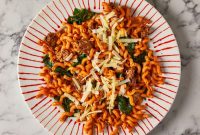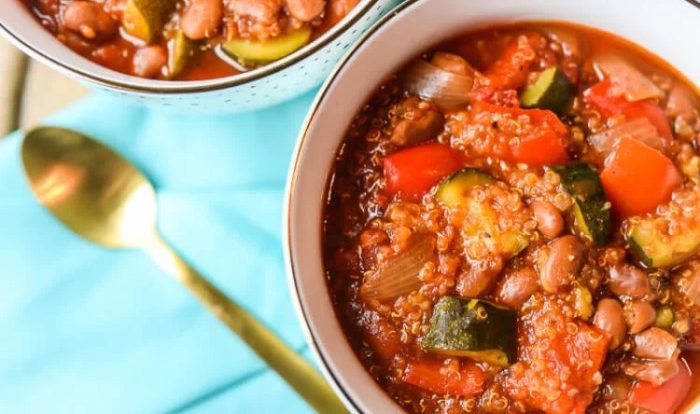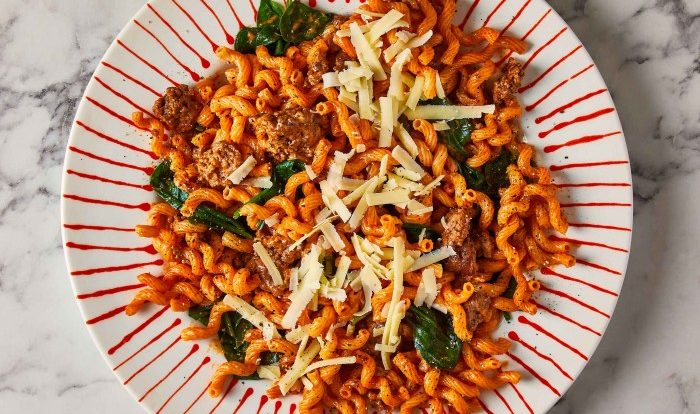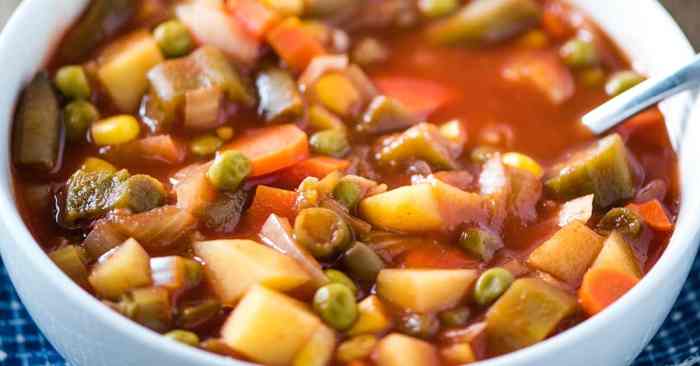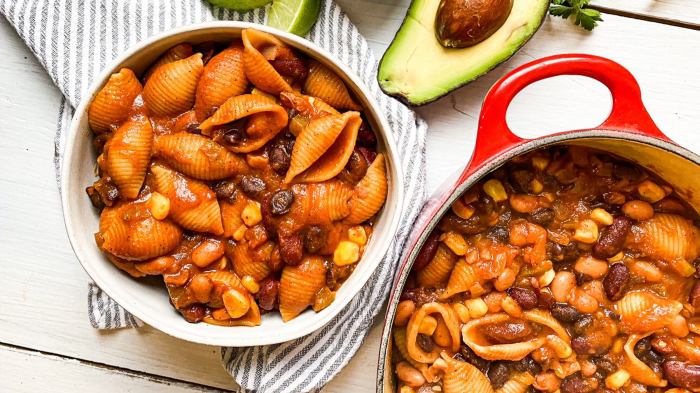Oatmeal for diet is not just a breakfast staple; it’s a nutritional powerhouse that can help you shed pounds, improve your health, and boost your energy levels. Join us as we dive into the world of oatmeal and explore its incredible benefits for weight loss and overall well-being.
From its rich fiber content to its low glycemic index, oatmeal is a dieter’s dream. It keeps you feeling full and satisfied, preventing cravings and overeating. Plus, its antioxidants and other nutrients support your health in countless ways.
Nutritional Benefits of Oatmeal
Oatmeal is a nutritional powerhouse that offers a wide range of health benefits. Its rich fiber content, low glycemic index, and presence of antioxidants make it an ideal choice for a healthy diet.
Fiber Content and Satiety
Oatmeal is an excellent source of dietary fiber, both soluble and insoluble. Soluble fiber dissolves in water to form a gel-like substance that slows down digestion and absorption of nutrients, promoting satiety and reducing hunger cravings.
Low Glycemic Index
Oatmeal has a low glycemic index (GI), which means it releases glucose into the bloodstream slowly and gradually. This helps maintain stable blood sugar levels, reducing the risk of insulin spikes and crashes.
Antioxidants
Oatmeal contains a variety of antioxidants, including avenanthramides, which have anti-inflammatory and anti-atherosclerotic properties. These antioxidants help protect cells from damage caused by free radicals, reducing the risk of chronic diseases such as heart disease and cancer.
Types of Oatmeal
Oatmeal is a versatile and nutritious grain that comes in various forms. Understanding the differences among these types can help you choose the one that best suits your preferences and dietary needs.
The three main types of oatmeal are rolled oats, steel-cut oats, and instant oats.
Rolled Oats
Rolled oats are the most common type of oatmeal. They are made from whole oat groats that have been steamed and rolled flat. Rolled oats have a soft texture and cook quickly, making them a convenient option for breakfast.
Advantages:
Oatmeal remains a go-to breakfast for dieters, but sometimes you crave something a little more substantial. If that’s the case, try air fryer hard boiled eggs . They’re quick and easy to make, and they’re a great source of protein and healthy fats.
Plus, they’ll help you stay full until lunchtime, making it easier to stick to your diet. Then, you can get back to enjoying your favorite oatmeal for a satisfying and nutritious breakfast.
- Quick and easy to cook
- Mild flavor and creamy texture
- Versatile and can be used in various recipes
Disadvantages:
- Lower in fiber and nutrients compared to other types of oatmeal
- Can become mushy if overcooked
Steel-Cut Oats
Steel-cut oats are made from whole oat groats that have been cut into small pieces. They have a chewier texture and take longer to cook than rolled oats. However, they are higher in fiber and nutrients.
Advantages:
- Higher in fiber and nutrients than other types of oatmeal
- Chewy texture and nutty flavor
- Versatile and can be used in various recipes
Disadvantages:
- Longer cooking time
- Chewier texture may not be preferred by everyone
- More expensive than other types of oatmeal
Instant Oats
Instant oats are made from rolled oats that have been pre-cooked and dried. They are the quickest and easiest type of oatmeal to prepare, as they only require hot water or milk to be added.
Advantages:
- Quickest and easiest to prepare
- Convenient for busy mornings
- Available in various flavors and varieties
Disadvantages:
- Lower in fiber and nutrients compared to other types of oatmeal
- May contain added sugars or artificial ingredients
- Less versatile and may not be suitable for all recipes
Oatmeal Recipes for Weight Loss
Kickstart your weight loss journey with these nutritious and satisfying oatmeal recipes. Tailored to support your weight loss goals, these recipes are low in calories, rich in fiber, and packed with nutrient-dense ingredients.
Incorporating oatmeal into your weight loss plan provides sustained energy, promotes satiety, and helps regulate blood sugar levels. Explore our diverse selection of oatmeal recipes, each designed to meet your dietary needs and taste preferences.
Apple Cinnamon Oatmeal
This classic combination offers a warm and comforting breakfast option. Apples provide sweetness and fiber, while cinnamon adds a touch of spice. Together, they create a flavorful and satisfying meal that kickstarts your day.
- 1/2 cup rolled oats
- 1 cup water or unsweetened almond milk
- 1/2 apple, diced
- 1/4 teaspoon ground cinnamon
- Optional: honey or maple syrup for sweetness
Instructions:Combine oats, water, and apple in a small saucepan. Bring to a boil, then reduce heat and simmer for 5-7 minutes, or until oats are tender. Stir in cinnamon and optional sweetener. Serve warm.
Nutritional Information (per serving):150 calories, 5g fiber, 3g protein
Oatmeal Meal Plan: Oatmeal For Diet
To effectively integrate oatmeal into your weight loss journey, consider adopting a structured meal plan that incorporates oatmeal as a key component. This plan should provide a balanced intake of nutrients while maintaining a calorie deficit to promote weight loss.
Here’s a sample oatmeal meal plan designed for a week:
Breakfast
Oatmeal is an ideal breakfast option due to its high fiber content, which promotes satiety and helps regulate blood sugar levels. Consider the following oatmeal breakfast options:
- Day 1-3:Oatmeal with berries and nuts (1 cup cooked oatmeal, 1/2 cup berries, 1/4 cup nuts)
- Day 4-6:Oatmeal with fruit and peanut butter (1 cup cooked oatmeal, 1/2 cup fruit, 2 tablespoons peanut butter)
- Day 7:Oatmeal with yogurt and honey (1 cup cooked oatmeal, 1/2 cup yogurt, 1 tablespoon honey)
Lunch
For lunch, opt for oatmeal-based dishes that provide sustained energy and promote fullness. Consider the following options:
- Day 1-3:Oatmeal salad with grilled chicken (1 cup cooked oatmeal, 1/2 cup grilled chicken, 1/2 cup vegetables, 2 tablespoons vinaigrette)
- Day 4-6:Oatmeal soup with vegetables and beans (1 cup cooked oatmeal, 1 cup vegetable broth, 1/2 cup vegetables, 1/2 cup beans)
- Day 7:Oatmeal wraps with hummus and vegetables (1 cup cooked oatmeal, 1/2 cup hummus, 1/2 cup vegetables)
Dinner
While oatmeal is typically associated with breakfast, it can also be a satisfying dinner option. Consider the following oatmeal dinner ideas:
- Day 1-3:Oatmeal with chili (1 cup cooked oatmeal, 1 cup chili, 1/2 cup cheese)
- Day 4-6:Oatmeal with salmon and vegetables (1 cup cooked oatmeal, 4 ounces grilled salmon, 1/2 cup vegetables)
- Day 7:Oatmeal with lentil soup (1 cup cooked oatmeal, 1 cup lentil soup, 1/2 cup bread)
Nutritional Content
The nutritional content of each meal will vary depending on the specific ingredients used. However, here’s an approximate breakdown of the nutritional content of the meals included in this sample plan:
| Meal | Calories | Protein (g) | Carbohydrates (g) | Fiber (g) |
|---|---|---|---|---|
| Oatmeal with berries and nuts | 350 | 15 | 50 | 10 |
| Oatmeal with fruit and peanut butter | 400 | 20 | 55 | 12 |
| Oatmeal with yogurt and honey | 320 | 18 | 45 | 9 |
| Oatmeal salad with grilled chicken | 450 | 30 | 50 | 15 |
| Oatmeal soup with vegetables and beans | 380 | 25 | 45 | 13 |
| Oatmeal wraps with hummus and vegetables | 400 | 20 | 50 | 10 |
| Oatmeal with chili | 500 | 35 | 60 | 18 |
| Oatmeal with salmon and vegetables | 480 | 40 | 55 | 16 |
| Oatmeal with lentil soup | 420 | 28 | 50 | 14 |
Oatmeal as a Superfood

Oatmeal is widely regarded as a superfood due to its exceptional nutritional profile and potential health benefits. Its high fiber content, antioxidant properties, and abundance of vitamins and minerals make it a valuable addition to a balanced diet.
Consuming oatmeal has been associated with numerous health advantages, including:
Improved Heart Health
- Oatmeal contains soluble fiber, which helps reduce cholesterol levels by binding to cholesterol in the digestive tract and preventing its absorption into the bloodstream.
- The fiber in oatmeal also slows down the absorption of sugar into the bloodstream, helping to regulate blood sugar levels and reduce the risk of heart disease.
Reduced Cholesterol Levels
- The soluble fiber in oatmeal, known as beta-glucan, has been shown to effectively lower LDL (bad) cholesterol levels while increasing HDL (good) cholesterol levels.
- A study published in the journal “Nutrition, Metabolism and Cardiovascular Diseases” found that consuming 3 grams of beta-glucan daily for 8 weeks significantly reduced LDL cholesterol levels by an average of 5.3%.
Better Digestion
- Oatmeal is a rich source of insoluble fiber, which helps add bulk to stools and promotes regular bowel movements.
- The soluble fiber in oatmeal also helps slow down digestion, which can improve nutrient absorption and reduce the risk of gastrointestinal issues like diarrhea and constipation.
Oatmeal and Exercise

Oatmeal, a versatile and nutritious grain, plays a crucial role in supporting exercise performance. Its complex carbohydrates provide sustained energy before workouts, while its protein and fiber content aids in muscle recovery after exercise.
Sustained Energy for Workouts
The complex carbohydrates in oatmeal are slowly digested and absorbed, providing a steady stream of energy during exercise. This sustained energy helps maintain performance levels and prevents the dreaded “crash” that can occur when consuming simple carbohydrates like sugar.
Muscle Recovery after Exercise
Oatmeal is a good source of protein, which is essential for muscle repair and growth. The fiber in oatmeal also helps slow down the absorption of carbohydrates, allowing for a more gradual release of amino acids into the bloodstream. This sustained release of amino acids supports muscle recovery and reduces soreness.
Oatmeal and Digestion
Oatmeal is an excellent source of dietary fiber, which is essential for maintaining a healthy digestive system. Soluble fiber, a type found in oatmeal, absorbs water and forms a gel-like substance in the digestive tract. This gel helps slow down digestion, promoting regular bowel movements and preventing constipation.
Soluble Fiber and Regularity, Oatmeal for diet
Soluble fiber adds bulk to stool, making it softer and easier to pass. It also helps to regulate the absorption of nutrients, ensuring that the body absorbs essential vitamins and minerals while preventing excessive absorption of harmful substances. By promoting regular bowel movements, oatmeal helps to reduce the risk of digestive problems such as hemorrhoids and diverticular disease.
Potential Prebiotic Effects
Oatmeal may also have prebiotic effects, meaning it can help to promote the growth of beneficial bacteria in the gut. These bacteria, known as probiotics, play a vital role in maintaining a healthy digestive system. They help to break down complex carbohydrates, produce vitamins, and protect against harmful bacteria.
By supporting the growth of probiotics, oatmeal may help to improve overall digestive health and reduce the risk of digestive disorders.
Oatmeal and Cholesterol
Oatmeal has gained recognition for its cholesterol-lowering properties, making it a valuable addition to a heart-healthy diet. This effect is primarily attributed to the soluble fiber content of oatmeal.
Soluble Fiber and Cholesterol Binding
Soluble fiber, a type of dietary fiber found in oatmeal, plays a crucial role in reducing cholesterol levels. It forms a gel-like substance in the digestive tract, which binds to cholesterol molecules and prevents their absorption into the bloodstream.
Research has consistently demonstrated the effectiveness of soluble fiber in lowering cholesterol. A meta-analysis of 27 studies involving over 1,000 participants found that consuming soluble fiber significantly reduced total cholesterol by 5.1 mg/dL and LDL (bad) cholesterol by 7.4 mg/dL.
The American Heart Association recommends consuming 20-30 grams of soluble fiber per day for optimal cholesterol management.
Epilogue

Incorporating oatmeal into your diet is an easy and delicious way to lose weight, improve your health, and feel your best. Whether you enjoy it for breakfast, lunch, or dinner, oatmeal is a versatile and nutritious choice that will help you reach your goals.
So, what are you waiting for? Start adding oatmeal to your meals today and experience the amazing benefits for yourself!


